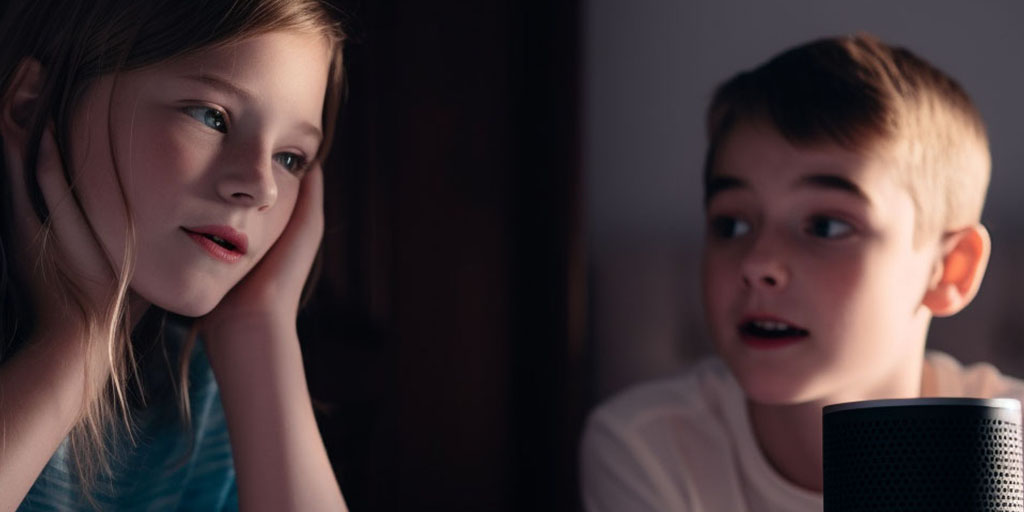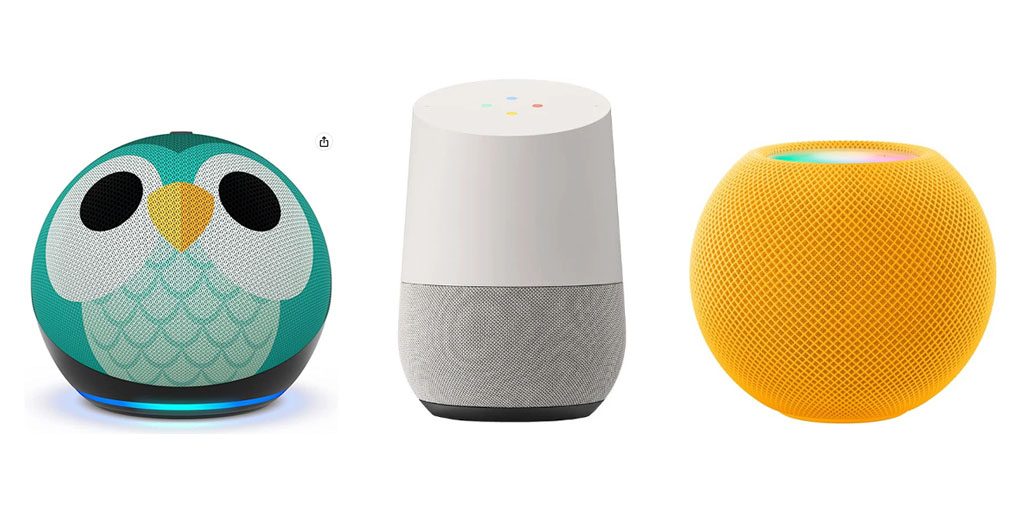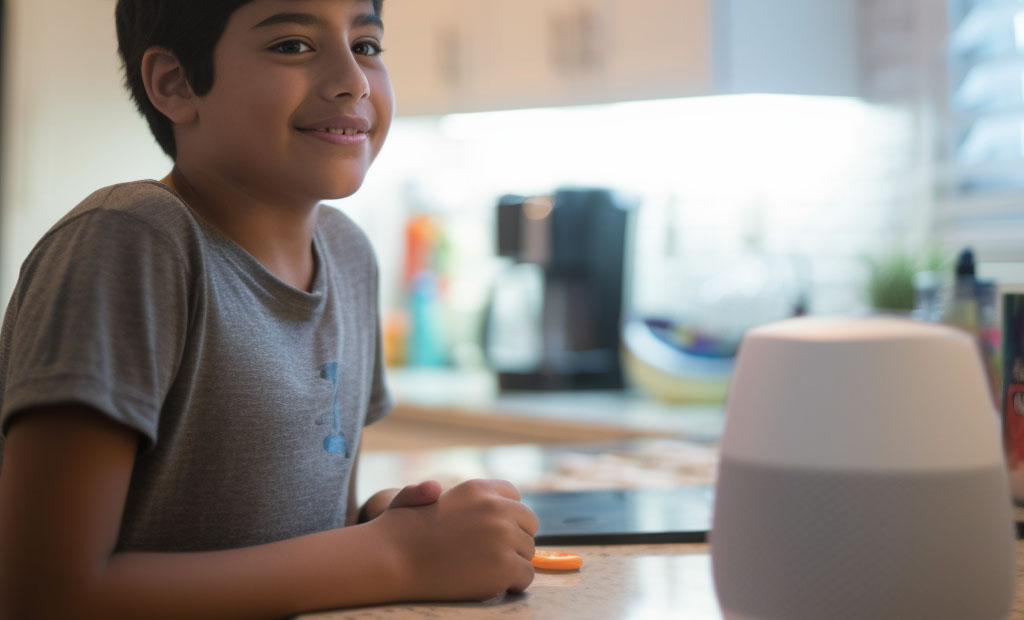
There are plenty of scary stories about young children ordering a $120 dollhouse and sugar cookies or $700 in toys through smart speaker devices with digital assistants like Alexa. If your payment information is linked to your Echo Dot without any parental controls, it’s shockingly simple for kids to purchase items using simple voice commands. With this knowledge, should parents purchase a smart speaker like an Echo Dot or Google Home for their child?
A smart speaker is a device with a microphone that “listens” for voice activation. They are considered “smart” because they can be linked with other smart devices, such as thermostats or smartphones, via a WiFi network or Bluetooth.
There are smart speakers designed specifically for children. These devices can read stories to your child and play music and games. Most smart speakers are enabled with parental controls that limit the function of the device. Amazon’s Echo Dot Kid’s Edition with Alexa is a popular smart device, but there are several others that can be used by children.

Echo Dot contains a huge library for children that includes music, games, and educational activities. The device does not use data to advertise to children, but it does store user data, as well as anything your child says to Alexa. The Kid’s Edition comes painted as a tiger or a bear.
As with all the other Apple products, Siri is the digital assistant. The Home Pod has better privacy protections than other smart speaker devices and collects a limited amount of user data, but the device only works with Apple-approved apps. It is pricier than other smart speakers, in part due to the music subscription (which is an extra charge).
The device “wakes up” Google Assistant with the phrase, “Hey Google.” Since that’s the same phrase for other Google devices, it may wake all of them in your home — not just the smart speaker. Like Echo Dot, Google Home collects a large amount of user data. Your child can use the device to play music and get homework help.
This bluetooth-enabled smart speaker has no microphone, no camera and no ads, so it’s great for kids age 3-12 years old. It lets your kids listen to audiobooks, music, meditations, educational content and more, including free podcasts, radio and soundscapes. All free of concerns that your kid’s data is being collected.
Experts are divided on whether or not children should be exposed to smart speakers. Some are very enthusiastic about children using them, while others warn about the downsides of their use by children. Here are some of the arguments:
Other cautions from experts include:

Most smart speakers for children tout a suggested age range for safe use, but not all children are alike or have the same level of maturity at the same age. While no one recommends a smart speaker for a child without some supervision, here are some questions to ask yourself about your child before purchasing a smart speaker:
If you answer “no” to any of these questions, that doesn’t mean a smart speaker is a poor choice. It may mean that the smart speaker is stored in a common area of the home instead of your child’s bedroom, or that your child is not allowed to use the smart speaker without the presence of a responsible adult.
Just as you should monitor your child’s online activity, parents are advised to set parental controls on smart speakers. Turn off the calls and messaging features of smart speakers, especially if the device is stored in your child’s bedroom. This can prevent cyberbullying and other forms of victimization. The filters for music with explicit lyrics or content should be enabled. Parents can also set the device to make emergency calls only.
Some smart speakers can be taught to recognize your child’s voice and will respond in a child-friendly manner. However, if you set the controls to only respond to your voice, there won’t be a way for your child to accidentally (or intentionally) order products through the device.
Age filters can also be set. The smart speaker features available to a 6-year-old should be quite different from features available to a child who is 13. At your discretion, you may remove unwanted or inappropriate content.
When considering your child’s maturity level, the amount of time they already spend online, and the privacy issues that plague some smart speaker manufacturers, some parents may decide against purchasing a smart speaker for their child. For parents who want to use the device as a family, a smart speaker purchase may be a good option — but it will require ongoing parental supervision.